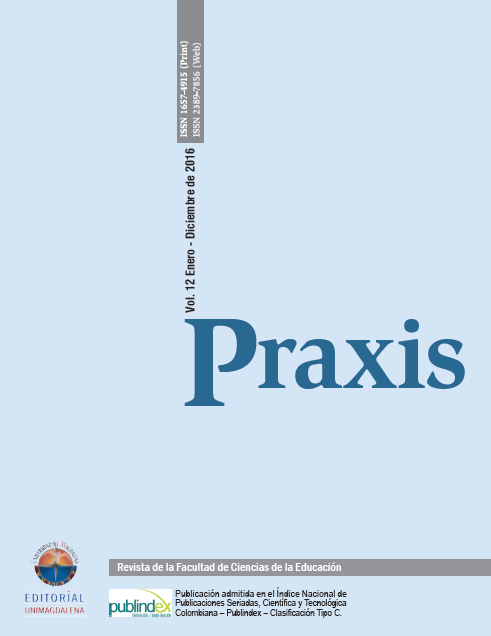Abstract
This research sought to learn about the factors that affect the motivation of students to continue studying Social communication – journalism; students worked with those who are the last semester (VII, VIII and IX) of the Soacha Regional Centre, one of the headquarters of UNIMINUTO in Colombia. The research is interesting because there have not been made research on these topics before, also which was evidenced by “case study” methodology that motivation is one of the most important factors so, that a student can decide or not to continue his university studies. At the time of answering to the research question, achieved to comply with the general objective “Identify the factors that affect the motivation of the students so that they to continue their university studies of Social communication - journalism UNIMINUTO program, headquarters Soacha”.References
Boza, Á., & Toscano, M. (2012). Motivos, actitudes y estrategias de aprendizaje: aprendizaje motivado en alumnos universitarios. Profesorado. Revista de currículum y formación del profesorado. Vol. 16 (1), 125-142. Recuperado de http://www.ugr.es/~recfpro/rev161ART8.pdf
Bur, A. (2011). Motivación en el aula universitaria. Reflexión Académica en Diseño y Comunicación. Vol. 12 (15), 104-108. Recuperado de http://fido.palermo.edu/servicios_dyc/publicacionesdc/archivos/269_libro.pdf
Heredia, Y. & Sánchez, A. (2012). Teorías del aprendizaje en el contexto educativo. Monterrey. México: Editorial Digital Tecnológico de Monterrey.
Lumsden, L. (1997). Expectationsforstudents, ERICDigest, Vol. Julio (116), 23-29, EducationalResourcesInformation Center. Recuperado de http://eric.ed.gov/?q=ED409609&id=ED409609
Monje, C. (2011). Metodología de la investigación cuantitativa y cualitativa, guía didáctica. Neiva. Colombia: Editorial Universidad Surcolombiana.
Munarriz, B. (1992). Técnicas y métodos en investigación cualitativa. Repositorio universidades da Coruña. Xornadas de Metodoloxia de Investigación educativa. Coruña, España.
Tejada, A. (2005). Agenciación humana en la teoría cognitivo social: Definición y posibilidades de aplicación. Pensamiento psicológico. Vol. 1 (5), 117-123. Recuperado de http://www.redalyc.org/pdf/801/80100510.pdf
Ureña, Y., & Villalobos, R. (2011). Gestión del conocimiento en instituciones universitarias de tecnología. Revista Praxis. Vol. 7, 155-180. Recuperado de http://revistas.unimagdalena.edu.co/index.php/praxis/article/view/20
Valenzuela, J., & Flores, M. (2012). Fundamentos de investigación educativa. Volumen 2. Monterrey. México: Editorial Digital Tecnológico de Monterrey

